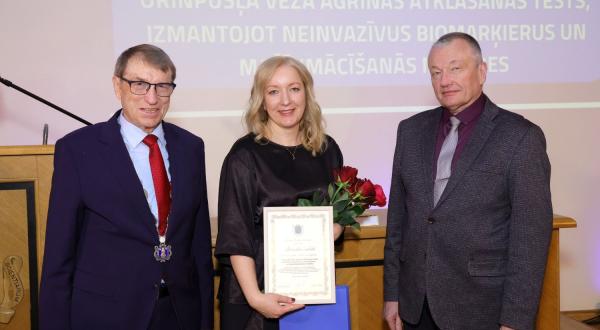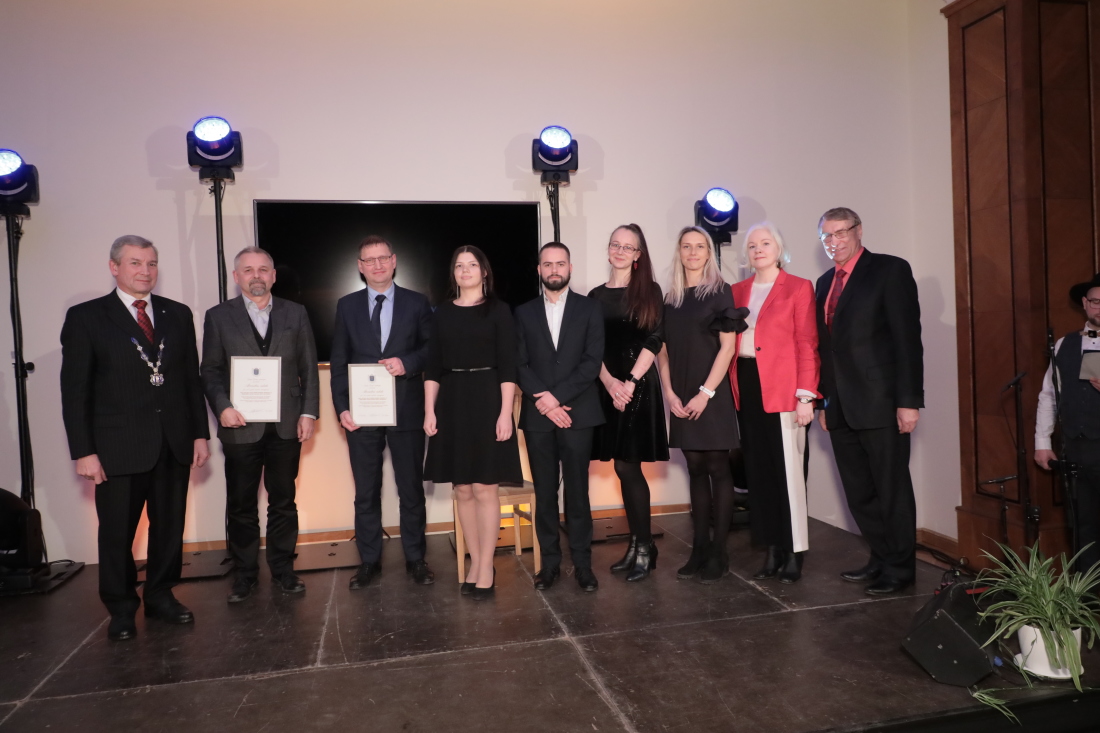RSU Researchers Search for New Ways to Treat Diabetes
Ilze Konrāde, an Associate Professor at Rīga Stradiņš University (RSU), is conducting a study together with a work group from RSU on human genetics and molecular medicine. This study will result in new mechanisms for the treatment of type 2 diabetes. The research group has received a letter of appreciation from the President of the Latvian Academy of Sciences for this research.
Objective
Assoc. Prof. Konrāde says that it is difficult to give a simple explanation of the study. You could begin in 1922 when metformin, one of the most important diabetes treatment medicines today, was discovered. This medicine not only reduces blood glucose levels, but is able to reduce cardiovascular diseases in patients with diabetes, and also reduces the risk of cancer. 2-3% of patients, however, cannot use this medicine as they develop intestinal tract issues within the first 12 hours after taking metformin.
The set of bacteria in our intestines is scientifically called the microbiome. There are both good and bad bacteria and there are more bacteria in the human body than there are cells. Metformin increases the number of good bacteria, but sometimes the changes the medicine causes are too drastic and can cause adverse side effects. Researchers have shown that changes to the microbiome, or the cell structure, can take place already a few hours after taking metformin. Researching this is important to being able to analyse the choice and impact of different medicines, and also opens up opportunities for new collaborative projects.
The importance of cooperation
Assoc. Prof. Konrāde emphasises that cooperation between different research institutes is one of the prerequisites to successful research as each institute contributes knowledge in its specific field. This research is being carried out in cooperation with the Latvian Biomedical Research and Study Centre and the Laboratory of Pharmaceutical Pharmacology of the Institute of Organic Synthesis. The next step for the study could be to explore how different dietary strategies affect intestines' microbiome.
The risks of diabetes
Diabetes is a chronic disease that results in increased blood sugar levels that can lead to serious complications and to disability or even premature death. The risk for developing cardiovascular diseases is 2-4 times higher for patients with type two diabetes.
There are currently almost 90 thousand patients with type two diabetes in Latvia. The rapid spread of this disease is not only a Latvian phenomenon as there has been an increase in the number of patients throughout the EU. Diabetes currently affects around 360 million people worldwide and it is estimated that more than half a billion people will be affected by 2030. The research being done at RSU is, therefore, significant not only for Latvia, but also on a global level.
Assoc. Prof. Ilze Konrāde (second from right) receiving the Latvian Academy of Sciences Certificate of Recognition with her colleagues.
Related news
 RSU research project on early diagnosis of bladder cancer receives recognition from the Latvian Academy of SciencesRecognition, Research, Innovation
RSU research project on early diagnosis of bladder cancer receives recognition from the Latvian Academy of SciencesRecognition, Research, Innovation



